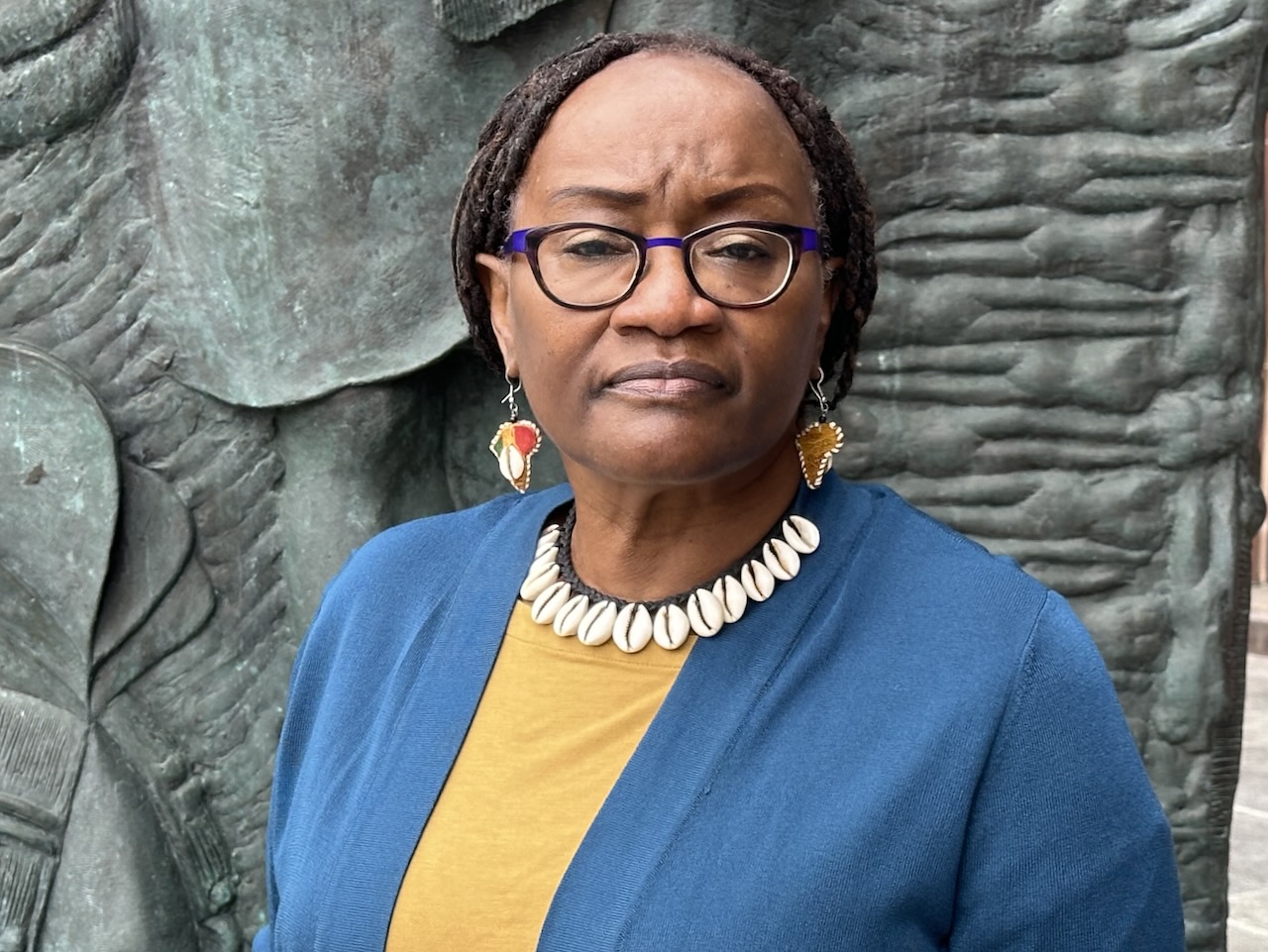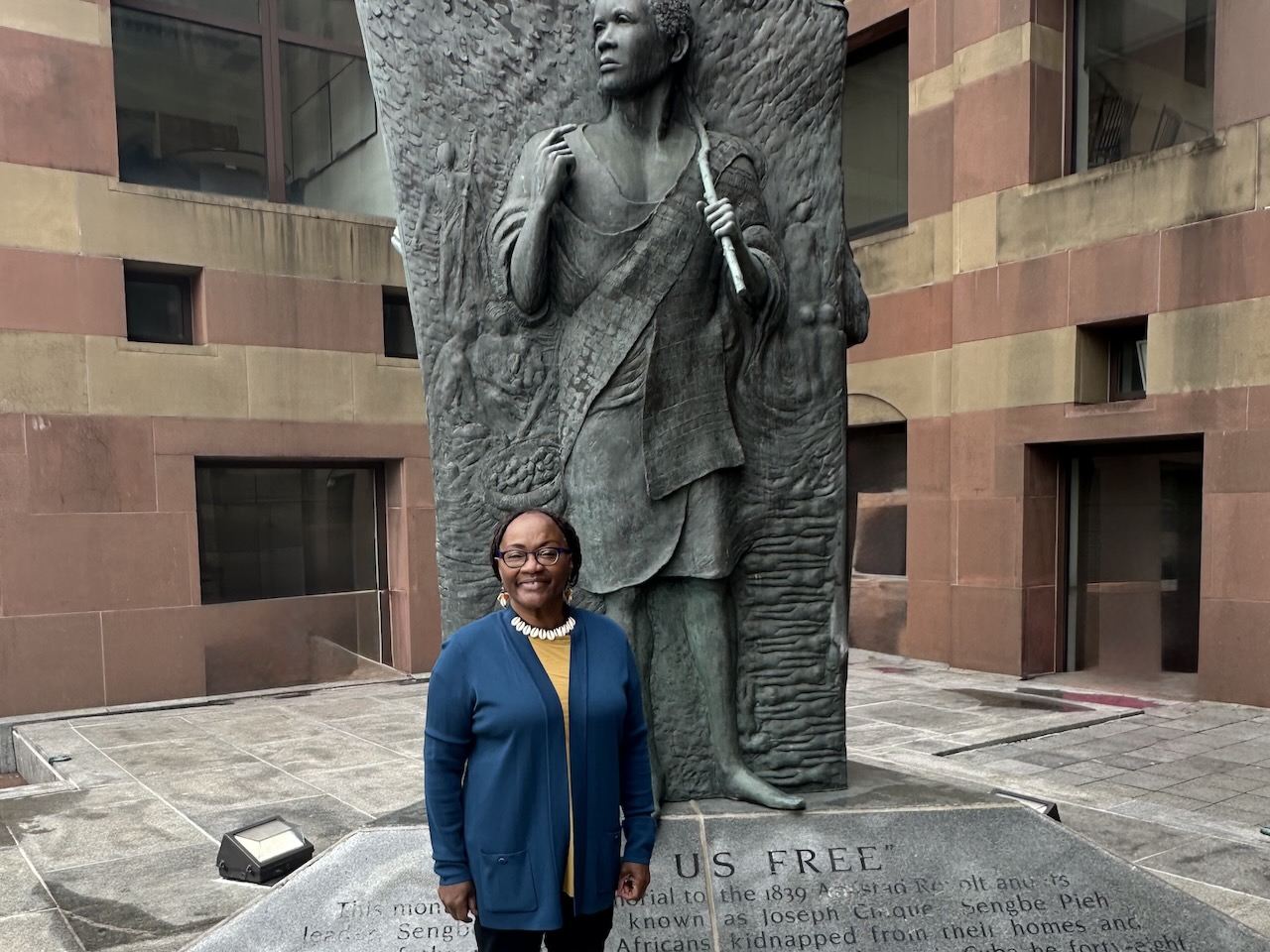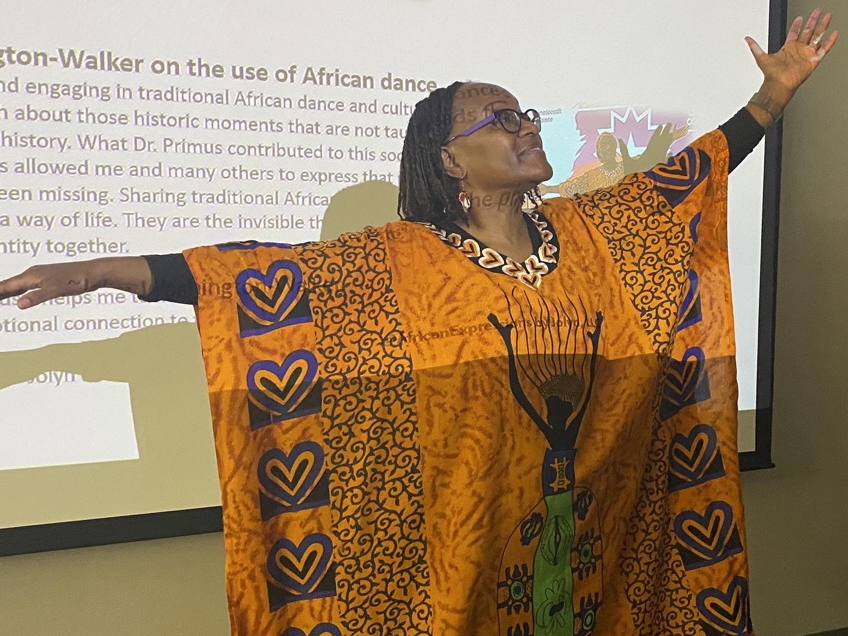photos by Lara Herscovitch & contributed (dancing)
As I shared in my last post in The Circle — Reclaiming My Culture Through Kwanzaa — growing up in Harlem, my family demonstrated Black pride. And still, shame found a way in, through all of the police brutality, discouraging teachers, and so much cultural disparagement aimed at those of us in brown skin. Reclaiming my heritage has been life-saving.
For many years even into adulthood, on the topic of my origins, I automatically referred to where my family was from as Ohio; the Toledo and Cincinnati area. I clung to that story until one day, someone asked, “by way of?” I had no answer, but it made me think and say to myself, “oh yes, we did not just pop up in Ohio.”
Around the same time, I learned that my eldest sister was doing some genealogy work into our family. I joined her by doing the research using the census records — and there I found it. The first mention of my grandfather I found was in West Virginia, but as I probed deeper, the records took me back to Alabama.
There, I had to face what I avoided for many years — not wanting to be associated with enslavement.
It was not talked about in my family. Some in my family believe it would have been hard to fight against the colonialism that purported that those enslaved were uncivilized, uncultured, were “heathen” and deserved to be treated the way they were.
Every single person who was enslaved was dehumanized. I later came to realize that was a psychological trick of the slave holders — in one hand they staunchly held that they lived by the Bible, and with the other they brutalized human beings without any regard.
For a long time, I could not articulate the feelings and what it meant to me. I now know that I internalized the shame, including because I was raised in churches that espoused those same dehumanizing messages. But then I was able to read and find out it was not true. For me this awareness came about with much prayer, songs and dance.
Through my research, I found my grandfather left Alabama alone because of the harsh sharecropper laws. He migrated to West Virginia, started a new family, then moved to Ohio. Of course, there are many details between those moves that touched my heart and at times, I had to walk away from the research. Even so, I felt the overwhelming sense of pride and freedom to know the truth.
Along the way during my research, I spent a month in Ghana, West Africa. I was amazed by how much I looked like I was Ghanaian; my tone of voice and stature were like the people in the village where I stayed. They were the Ga people. But I was not sure. (Over ten years later, our family took the step to find though African Ancestry DNA testing that our blood lines reach back to the relatively nearby West African country of Sierra Leone.)
The trip to Ghana offered many excursions and one of them was a trip to Elmina Castle, one of the primary places where over 30,000 enslaved people were bound by chains before being forced through the “Door of no return” and herded onto terrifying and dangerous ships headed for the Americas. It is now a UNESCO World Heritage Site.
Our trip to Elmina was led by a tour guide who narrated the experience that left me and many others in tears. A small group of us decided to do a debrief and ask ourselves, why the tears? We were asked to do deep soul searching.
After pushing away my feelings that were on the surface, the deep work revealed three-fold reasons:
I cried first because of the obvious, brutal and callous way human beings were treated, especially the women.
I cried because I faced the fact that I did not know where I was from.
I cried because I felt overwhelming joy that ancestors were looking on as I walked over that drawbridge, without my hands or feet being bound in chains.
Juneteenth, the time when all Africans forced to these U.S. shores were legally no longer enslaved, is celebrated all over the country — although its roots are planted deep in Texas history. By law, enslavers could no longer hold anyone.
That is the short version.
On January 1, 1863, President Lincoln signed the Emancipation Proclamation declaring all enslaved people to be free. But official word did not get to the people in Galveston Texas for two years. In 1865, federal troops moved into Galveston to ensure that those who had been enslaved knew that they were no longer under the system that had them bound to work under harsh conditions and with no compensation.
It is noted that when the official word reached the people in Galveston, they celebrated, danced, and had a huge cookout. Those celebrations continue, all through the generations, to this day.
That sense of freedom when you know for sure that your station in life has changed for the better. And to some degree it was better, but it did not really mean Free.
Because for subsequent generations, Black people have still had to fight for freedom alongside Brown people in all its modern forms of constraint: the Jim Crow laws… the redlining… the lack of access to the GI Bill… the so-called “war on drugs” and mass incarceration… And I do not have a descriptor for what we are moving into today with the deliberate erasure of our history, including the threat to dismantle the African American Museum in Washington D.C.
The freedom to embrace this history and to hold up my resolve, has led me — at any chance I get — to tell everyone but especially we who are descendants of enslaved people, that we are living miracles. For people to endure the torturous way our ancestors were treated, forced on ships with no care, surviving the unsanitary and sickening voyage, enduring the torture of enslavement with no compensation, then moving through Jim Crow Laws, Civil Rights, up until today with police brutality and sustaining inequities?
Yes, we are living miracles.
“The Grandmother of Juneteenth” is Dr. Opal Lee. Through tenacity and assistance from friends all over the country, she worked for 40-plus years, including a walk from Texas to Washington, D.C. to fight for Juneteenth to become a national holiday in the United States. She started her walk in 2016, and spearheaded a petition that she hoped would get 100,000 signatures. It got 1.6 million.
After she reached Washington D.C. in 2021, she was received with huge fanfare; Juneteenth was signed into a national holiday, and she was nominated for a Nobel Peace Prize. Dr. Opal Lee is a perfect example of that enduring strength of the African American spirit and the divine presence that has guided generations toward justice and equality.
My family’s bi-annual gathering is our time to be together, celebrate, reconnect, and honor the legacy of our ancestors, exchanging and sharing further genealogy findings with each other. We continue the centuries-long traditions of liberation with food and dance and embracing the spirit of resilience and faith.
African dance is a way of life for me now. I turn to African dance to bridge divides, and share the perspective that many of us African American descendants of enslaved people grapple with. I share my story and my dancing in hopes that others also drop the veil of disassociation and find their voice, beauty, intelligence, strength and resilience that lives within. For me this awareness came about with much prayer, songs, dance and facing the truth through research.
I leave you with a call to action: look for and discover even more about your own heritage, as well as other cultures. Be open to learn.
Learn more about Jolyn at the Sacred Dance Guild
To reach Jolyn directly: jolynwalk@yahoo.com



